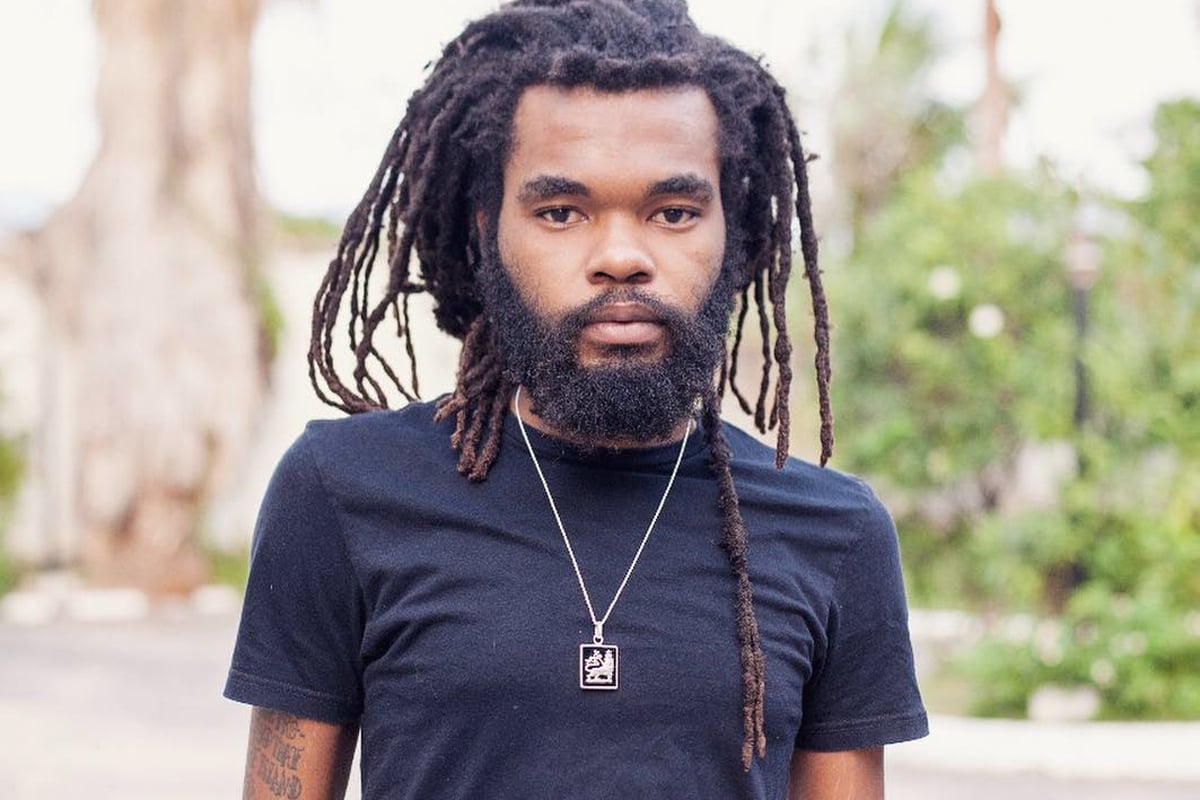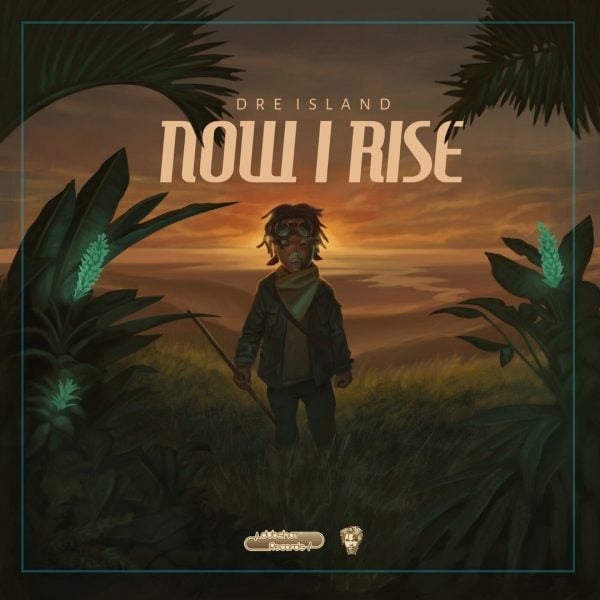Ten Takeaways From Dre Island’s New Album ‘Now I Rise’

It’s been five years in the making, and the time has finally arrived. For Dre Island, the release of his new album Now I Rise was motivated by an inclination. “I am moved to drop this album at this time because I am divinely inspired to do so,” he told Vibe Magazine two days after the album launched.
The 13-track compilation features brand new singles, of course, however, four were previously released. The powerful ballad Still Remain debuted just last month and another, Be Okay earlier in January, while the popular We Pray featuring Popcaan released back in 2017 and his igniting single My City in 2018.
Now I Rise unfolds quite a few surprises as well as an unveiling of Andre Johnson, more so his musician counterpart Dre Island. While each song has its unique style and story, there is one thing that stood out the most, and that is his quest to impart knowledge to the people.
 A synthesis of spiritual elevations and conscious appeal, the album too walks listeners through a roots revival movement. All these elements and more reveal ten takeaways that we aim to explore – Let’s begin!
A synthesis of spiritual elevations and conscious appeal, the album too walks listeners through a roots revival movement. All these elements and more reveal ten takeaways that we aim to explore – Let’s begin!
Rasta don’t trust nobody.
Probably not the most shocking bit of news, after all, what Rasta man isn’t guarded and wary of people as a whole. With a stamp of authenticity, Dre Island makes his cynicism clear in singles like Now I Rise, Kingdom, Days of Stone, and Still Remain.
They all ring cautionary bells, ‘bun out’ Babylon, watch out for the politician, and don’t listen to the Christians, even the “pretty browning dat yuh new to,” should not be trusted.
“Christian still a preach salvation, Rasta man still a teach liberation, Africans unite we all are one,” he sings in Still Remain and “Suh Pagans stay … like Judas dem wah betray,” he asserts in Now I Rise.
Mama taught him well.
“Bang yuh head, Mama say son nuh cry cause yuh river will never run dry,” is the intro and chorus of Never Run Dry. It is a motivational piece, which started with the lessons from Mama. She inspired him to stand tall against the odds, a trait that has stood the test of time. Dre can promise the same to others now, especially in these uncertain times.
He also does so in We Pray featuring Popcaan, the singer imparts a little wisdom from Mama as well. “Life is journey, it’s a long race, Mama say son be wise and don’t bring disgrace,” again in another plea not to let hardships deter you from achieving goals.
Drop-in a little Buju and fire up some Capleton
Dre mixes in a few classics here and there. He finds love in his single Four Seasons, and even though the track is a remedy of pop and old disco rhythms the singer remixes Buju Banton’s 1993 hit single Make My Day in one of the verses.
“Roses in my garden pretty little flower … baby yuh mi need every minute ah di hour,” he sings with the same tone.
Then in the last single of the album, Still Remain, he also drops lyrics from Capleton’s 1994 single Chalis surprisingly towards the end in an impactful chant. “Africans! Light up the challis mek we bun down Rome…” he carries on adding different renditions.
https://www.youtube.com/watch?v=Ym3A3n6fZHU
Speaking of Rome, he’s not a fan.
Clearly, he expresses to ‘bun down Rome’ in Still Remain, but he continues to hate against the ancient city a couple more times throughout the album. In Kingdom, “Fire a go burn down Rome,” later on, he says Rasta youths will come to claim their own, ‘Mama Africa mi know it on mi own, bun out the land weh dem call name Rome.”
In Days of Stone, even though he’s trodding it from the days of stone, “di fire still ah burn in a Rome.” Even Chronixx, who is featured on the track, chimes in the same sentiments.
Bear in mind, Rastafarians regard the Roman Empire as the pagans who crucified Jah. It’s often referred to as Babylon as well, and Rasta’s perceive the exile of the black African diaspora in Babylon as an experience of great suffering, with the term ‘suffering’ having a significant place in Rasta discourse.
He’s a warrior for the people.
Having being raised in these streets, Dre knows a thing or two about corruption and violence. He understands how the system works and the injustice that is dished out to the underprivileged.
While he sings his motivational tunes in efforts of uplifting the people, he knows its necessary. Ghetto youths lack a voice; they lack the knowledge and the courage to speak up for themselves, so he does it for them.
Never Run Dry is riddled with jabs, yet it platforms his intellect on certain matters. The politicians, he says, smile with their kids and their ladies, then give thanks and praises for all of ‘our’ slaveries. No matter how hard ghetto people work, their measly salaries still can’t put meals on their plates. As he delves deeper into issues on poverty and joblessness, the ferocity he stirs is a fight for equal rights.
In My City especially, he lists one problem after the next, ‘shots rang out on repeat’, ‘politicians everyday import a strap’, ‘bare mischief and billions in a court a knock,’ and he goes on.
“We fighting for equal rights and justice,” he says in Kingdom. Days of Stone urges the people to open their eyes and not to be deceived by evil, which is prevalent. Be Okay and Still Remain, his words resonate like that of a prophet as he asks the people to join him in rebel.
There are songs for quarantine times.
There is a couple here for sure, however only one names a virus. Days of Stone talks about Babylon creating a nuclear disease and calling it Ebola. Other singles have a different quarantine dial, more so about holding the faith.
Be Okay featuring Jesse Royal stands out the most. “As sure as the sun shall shine, we all one day go’n be fine, everything’s gonna to be okay,” he choruses through the track in assuring quality. He reassures this, again dropping a little knowledge; “Amelioration of creation is apart of the Cree, whether or not you agree.” Then More Love is an outpouring of inspiration and encouragement that is promised during rough times.
Still, Remain and Kingdom are both more influential, somewhat strengthening the minds of the people to be resilient. In Still Remain, Dre says not to be discouraged, “Jah never fail, he will reveal” and in Kingdom, that Babylon will soon be overthrown, “Jah kingdom is ready to rule .. only the fittest of the fittest shall survive.”
Shout out to Vybz Kartel
Well, not in those words exactly, Days of Stone mentions the incarcerated Worl Boss, but you have to catch it quickly! Adidja Azim Palmer is his real name if you’re not a fan.
Dre says many preachers and teachers are running the streets amidst the violence but none as fortunate as Vybz Kartel to be doing the same in the comfort of his jail cell.
“A nuh everyman lucky like Mr. Adidja, fi deh behind di bars and ah lock di streets yah.” Listen below.
Dre’s got a tender side
Yep, he’s a charmer. Right down and buried in the middle of the album are his lover boy tracks. Four Seasons, Calling, Run to Me, and Favourite Girl all platform this charming Rasta man.
The buoyant rhythm in Four Seasons celebrates his love; she’s his sunshine, the rainfall, the winds that blow through the beachside, the moonlight and stars that shine in the nighttime.
Calling gets a little deeper as his emotions turn into raw energy, “She’s up in my room drinking tequila, sexy lingerie, and dem talls heel yah. Grown folks time, she nuh in a di kidding around …. backstage sipping on some red wine and in a minute it’s about to be showtime,” he sings to build up the mood for some intimate action.
Run to Me professes his love for his girl and, in doing so, describes why she is his favorite, while the single Favourite Girl versus all the things he wants to do with her.
There are some surprising melodies.
The first track Kingdom whispers a fresh sounding roots and culture vibe, even though his raspy Rasta-style vocals dominate the length of the track, the melody sounds quite euphonious.
However, Four Seasons is by far the most surprising of the lot; there are assemblies of pop, jazz, and hints of old disco beats. The acoustics are mellow nonetheless, which allows Dre to demonstrate his vocal ranges.
Favorite Girl and More Love are both contemporary, soulful ballads, dialed in natural dance pulses. Dre’s vocals are unflawed and harmonious while his delivery and style are hip and trendy.
He talks up his dimes in My City.
My City is a dynamic expression of Kingston city. The way he tells you where he’s from is enlightening and heartwarming at the same time, especially when he says even though he comes from the ghetto, the love is so sweet that it can give you a heart attack.
As the verses pull you in for the perceptive tale of his hometown riddled in violence, the one they say ‘melt when di Pope a chat,’ out of nowhere Dre just drops in a few lines about his richness.
“Bumboclaat them big rose gold rope yah fat roun gangster neck, we money taller than Oprah stock,” then he goes right back to talking about his city.
Check out all of Dre Island’s 13 tracks in Now I Rise here.
